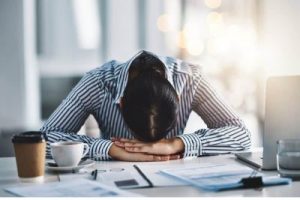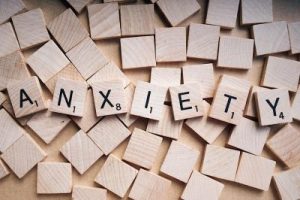Too often, when we are overwhelmed or struggling, we’ll go it alone because that’s how we have been brought up and educated to think. In some cultures, particularly in Asia, there can be a culture of managing things on your own, and if you can’t, then, it has to stay within the family to prevent the family from being shamed. Traditionally there could be a real stigma related to letting people know there were mental health issues within the family.
We are taught to say “can”, rather than “can’t”. Sometimes, we can’t cope on our own, and there’s little point pretending we can. Delaying asking for help can often see us sliding further, even causing us to enter into a state of crisis. It can be very lonely and isolating struggling by yourself day after day.
If you were sick, you would quite likely visit a Doctor. Apart from finding time in your busy schedule, there would be very little stopping you from getting the help you needed. Its something we do quite naturally.
Asking for help should in the majority of occasions happen a lot earlier than it does. That might be in the form of asking for help from a trusted family member, friend, or even a boss. It might prove useful to visit a GP or mental health professional.
For some, they will interpret the way they feel as falling below an imaginary threshold and therefore, they will tell themselves that help isn’t needed. They will continue trying to cope just as they taught to. Others will say to themselves that life wasn’t meant to be easy, or that they weren’t meant to be happy.
Remember not to compare yourself to someone else when deciding whether to ask for help. We all have different needs. We all cope in different ways.
What are some of the signs that I might need to talk to a therapist?
If you recognise any of the following in how you feel, and if they are impacting your performance or ability to function, then you may want to consider asking for help. Generally, we can start to tell that we might need to seek advice when the way we feel doesn’t resolve itself within a week or two. You should also ask for help immediately from your local emergency services if you feel at risk of harming yourself or others.
- More tired than usual
- Difficulties sleeping properly
- Struggling to focus
- Loss of motivation – or struggling to get out of bed
- Feeling overwhelmed
- Anxious or stressed more than usual.
- Not enjoying eating or doing things you used to
- Levels of anger or resentment higher than usual
- You are feeling uncomfortable when you go out, being late or dropping out of appointments.
- You are feeling empty or have higher levels of apathy than usual for you.
On there own, or to reasonable levels, all of the above can occur to us quite naturally from time to time and often won’t affect our mood or ability to function properly. There is no reason to worry.
However, if you think the way you feel impacts your ability to function or do things the way you want to, then it might be the time to ask for help.
Qualified Counsellors and psychologists are trained to help you make sense of how you are feeling. They can help you make sense of it all and empower you to decide what you might want to change or ways in which you can cope more easily.
Maria Luedeke at Aspire Counselling, Singapore is a qualified Counsellor who works with people wanting to improve their mental health. Maria works with parents and adolescents, or others needing help and support in their lives. Maria is available to provide support and guidance both face to face and over secure video counselling, working both locally and internationally.





